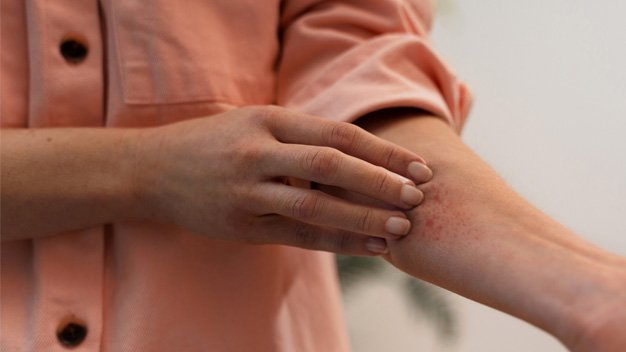
Are you suffering from atopic dermatitis? It is basically a skin condition that relates to dry and itchy skin and even inflammation. It has been seen that the respective issue is hampering the quality of life significantly. It can cause a lot of discomfort and emotional distress. So, if you are thinking about how to get the same treatment, then you have certainly landed on the right page. We are here to help you understand every aspect related to the respective issue and how you can get Eczema relief effectively. Read on.
Eczema: All You Must Know About It
The most common type of eczema, atopic dermatitis affects people of all ages. It is sometimes connected to an overactive immune response that causes skin irritation, therefore producing dry skin and strong itching. Typical triggers consist:
- Environmental factors
- Weather conditions
- Skin care products
- Stress
Effective control of atopic dermatitis depends on an awareness of these triggers.
Soothing Tips for Eczema Relief
Below are some of the essential tips for you to follow to go for Eczema relief. Check it out.
- Moisturize Regularly Keeping the skin hydrated is essential for alleviating dry skin associated with eczema. Use a thick moisturizer or emollient immediately after bathing to lock in moisture. Look for products containing ingredients like ceramides or colloidal oatmeal, which help restore the skin barrier.
- Cool Compresses Applying a cool compress to itchy skin can provide immediate relief from irritation. Soak a clean cloth in cool water and apply it to the affected areas for 10-15 minutes. Follow this with a moisturizer to maintain hydration.
- Gentle Bathing Practices Opt for lukewarm baths instead of hot ones, as hot water can strip the skin of its natural oils. Adding colloidal oatmeal or baking soda to bathwater can soothe itchy skin. After bathing, gently pat the skin dry and apply a moisturizer while the skin is still damp.
- Wear Appropriate Clothing Choose soft, breathable fabrics like cotton that won’t irritate the skin. Avoid wool and synthetic materials that can cause itching and discomfort.
- Use Humidifiers Dry indoor air can worsen eczema symptoms. Using a humidifier adds moisture to the air, helping to alleviate dryness in the skin.
- Stress Management Since stress can trigger flare-ups, incorporating relaxation techniques such as yoga, meditation, or deep-breathing exercises may help in reducing symptoms.
Medical Treatments for Eczema
Apart from home remedies, some medical therapies are accessible for more severe eczema cases:
- Steroid Creams Topical corticosteroids are commonly prescribed to reduce inflammation and relieve itching associated with eczema flare-ups. These creams vary in potency; mild options like hydrocortisone are available over-the-counter, while stronger formulations require a prescription.
- Non-Steroidal Topical Treatments Newer treatments such as crisaborole (Eucrisa) and ruxolitinib (Opzelura) provide anti-inflammatory benefits without the side effects associated with long-term steroid use.
- Biologic Medications For moderate to severe atopic dermatitis that does not respond well to other treatments, biologics like dupilumab (Dupixent) target specific pathways in the immune system to reduce inflammation and itching.
- Oral Medications In some cases, oral antihistamines or immunosuppressants may be prescribed to help manage symptoms effectively.
Lifestyle Changes for Long-Term Eczema Relief
Furthermore, greatly helping with eczema is including some lifestyle modifications:
- Dietary Adjustments Some individuals find that eliminating potential food allergens such as dairy or gluten helps reduce flare-ups. A diet rich in anti-inflammatory foods like fatty fish, leafy greens, and nuts may also be beneficial.
- Regular Skin Care Routine Establishing a consistent skincare routine that includes gentle cleansing and regular moisturizing can help maintain skin integrity and prevent flare-ups.
- Avoiding Known Triggers Keeping a diary to track flare-ups can help identify specific triggers related to stressors or environmental factors.
Conclusion
Hopefully you have got complete clarity on how to manage atopic dermatitis that includes both soothing tips and medical treatments. All you need to do is to get good hold of triggers and employ effective strategies for eczema relief. To do that you cna always consider reaching out to Deepasri Hospital for expert guidance and personalized treatment options. Consult now!

